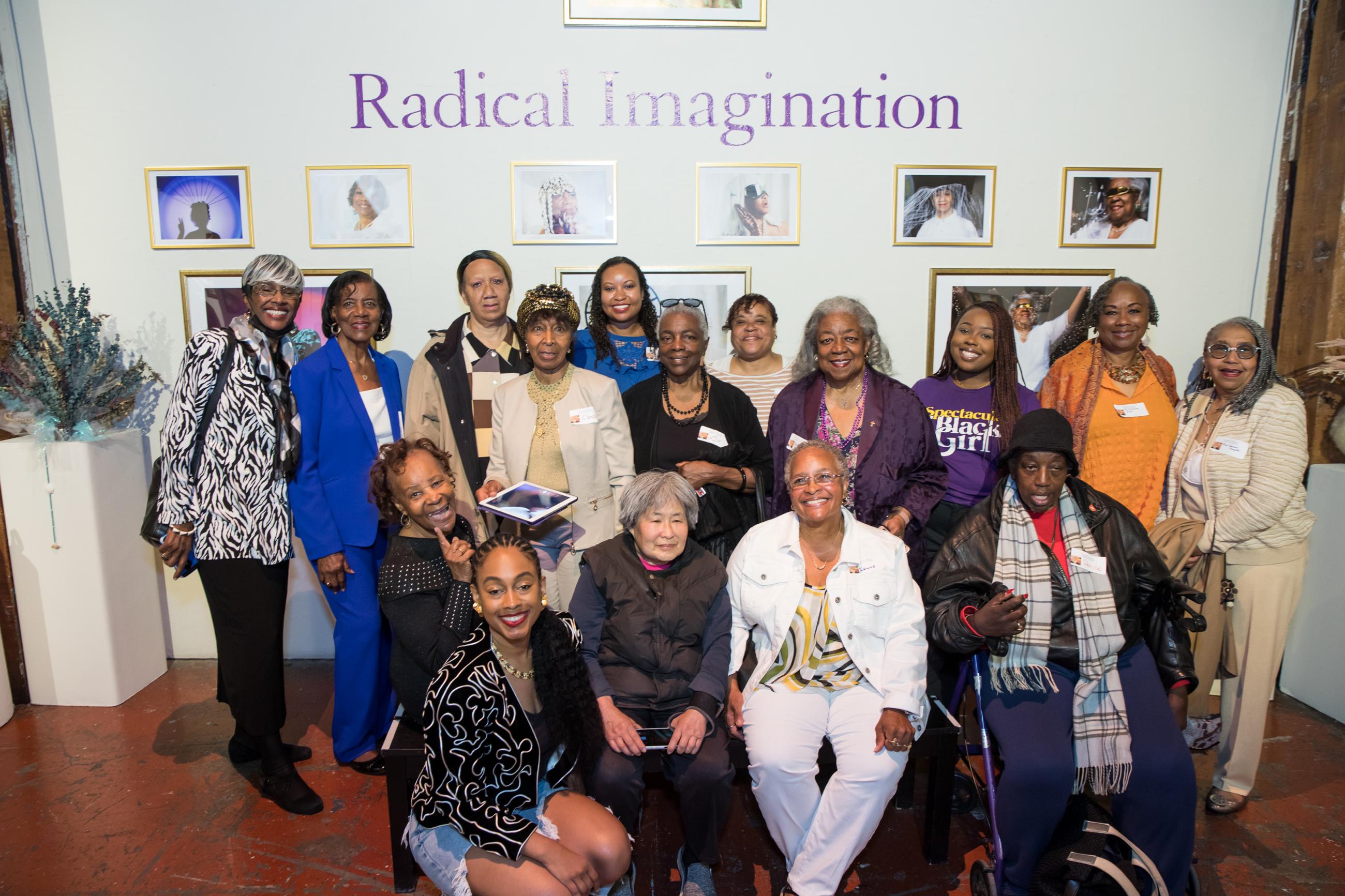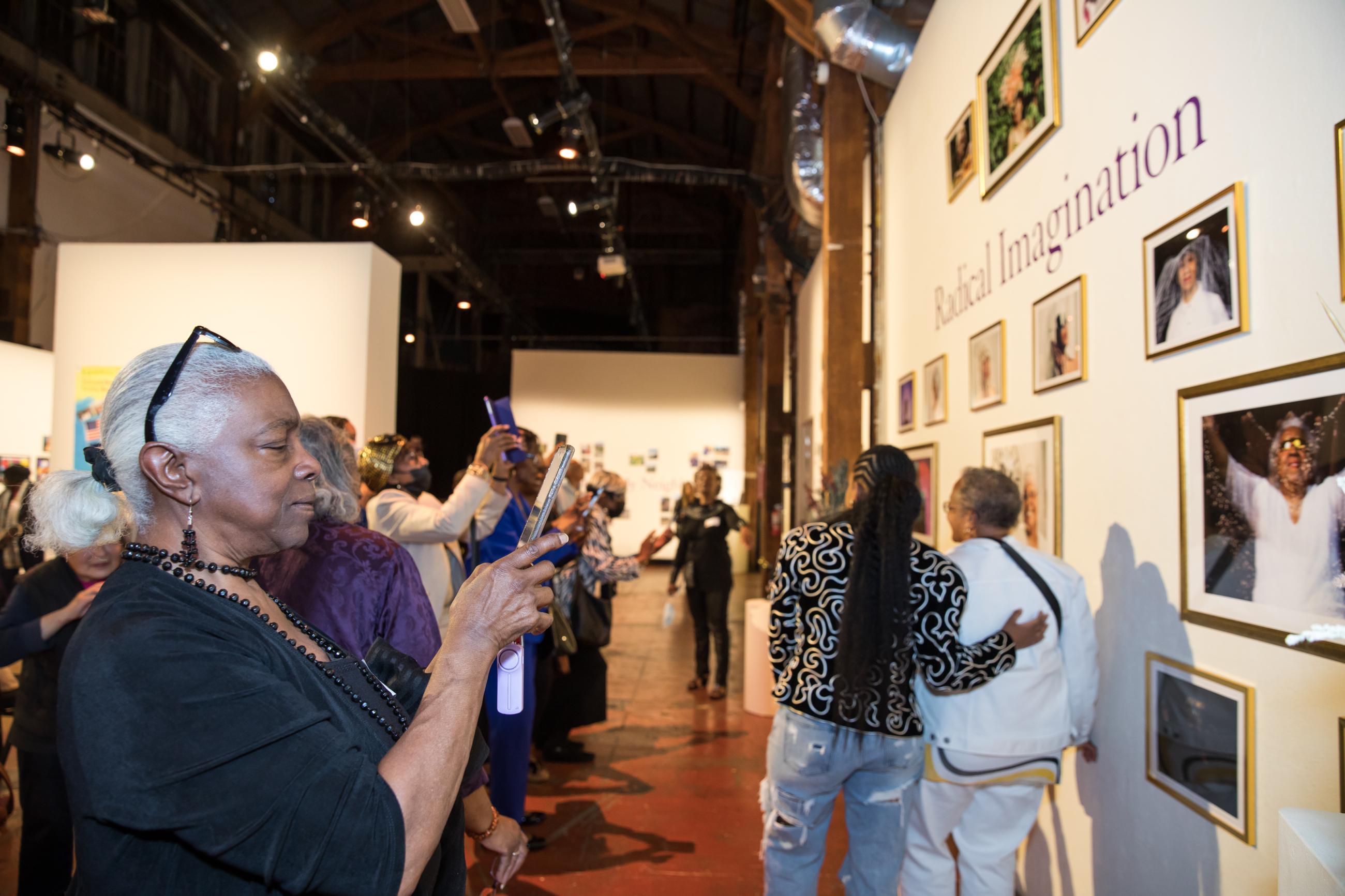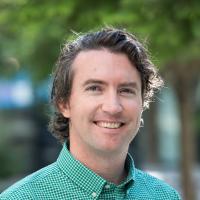Storytelling Project Addresses Older Black Women's Healthcare Disparities
Tanisha Hill-Jarrett receives the 2024 Population Health and (Brain) Health Equity Award for her digital storytelling project using Afrofuturism to address healthcare disparities faced by older Black women.

Tanisha Hill-Jarrett and participants in the Radical Imagination gather during a Creative Minds art exhibit in San Francisco in August 2023. Photo by Elisabeth Fall.
A new research project led by Tanisha Hill-Jarrett, Assistant Professor at UCSF Memory and Aging Center and Atlantic Fellow for Equity in Brain Health, has been honored with the 2024 Population Health and (Brain) Health Equity Award by the Global Brain Health Institute (GBHI) and UCSF School of Medicine.
The project, titled "What we don’t see, we assume can’t be’: Black women’s experience of healthcare and possible brain health futures using Afrofuturism and digital storytelling,” focuses on addressing healthcare disparities experienced by older Black women using Afrofuturism—a genre that centers Black history and culture—and digital storytelling. It specifically targets racial and gender disparities in Alzheimer's disease and related dementias (ADRD), shedding light on the unique challenges faced by Black women across their life course.
“The healthcare system represents another institution through which structural racism and sexism manifest to impact the health outcomes of Black American women,” said Hill-Jarrett. “Having the opportunity for Black women to share their stories and visions for what healthcare should look like reasserts Black women’s agency and places them at the center of this critical conversation. Afrofuturism offers a creative language and artform for Black women to express possible futures in ways that uniquely resonate with the Black cultural experience.”
Building on the success of the workshop series "Radical Imagination: A Dream Space for Black Women," conducted as part of the Creative Minds initiative at the UCSF Memory and Aging Center, the project aims to collect oral histories from 15 local Black women in the San Francisco Bay Area. Through guided digital storytelling workshops, participants will craft narratives and envision future models of brain health care using Afrofuturism.
Having the opportunity for Black women to share their stories and visions for what healthcare should look like reasserts Black women’s agency and places them at the center of this critical conversation.
—Tanisha Hill-Jarrett

Audience members view the Radical Imagination at a Creative Minds arts showcase in San Francisco in August 2023. Photo by Elisabeth Fall.
The anticipated outcomes include disrupting power imbalances, presenting a short film screening of 15 stories, and contributing to long-lasting cognitive and psychological health impact for Black women.
“Through this important collaboration, we're committed to advancing Diversity, Equity, Inclusion, and Belonging initiatives at UCSF,” said Victor Valcour, Site Director of GBHI at UCSF.
Sponsored by GBHI, the Equity Award supports research or programming related to population health and (brain) health equity, with a focus on impacting communities in the San Francisco Bay Area. In addition to receiving funds of $20,000, Hill-Jarrett joins a cohort of scholars at UCSF—including Jessica de Leon, Assistant Professor at the UCSF Memory and Aging Center—to share experiences and achievements in the realm of health equity.
Now in its sixth year, the Equity Award is coordinated with the Population Health and Health Equity Scholars Award presented by UCSF’s Vice Dean for Population Health and Health Equity, Alicia Fernández, and the Dean of the School of Medicine, Talmadge King. The award underscores GBHI's dedication to equity and aims to catalyze innovative research for brain health in underserved communities.
Past and current award winners will be showcased at the annual Population Health & Brain Health Equity Scholars Lecture on April 1, 2024. Previous projects have focused on issues of homelessness, dementia assessment, socioeconomic status, underrepresented populations, and diversity in neurodegenerative research.
Authors

Niall Kavanagh
Communications Officer
GBHI Members Mentioned

Tanisha Hill-Jarrett, PhD
Neuropsychologist

Victor Valcour, MD, PhD
Site Director, University of California, San Francisco


